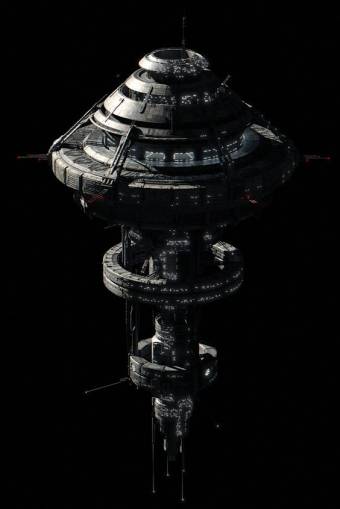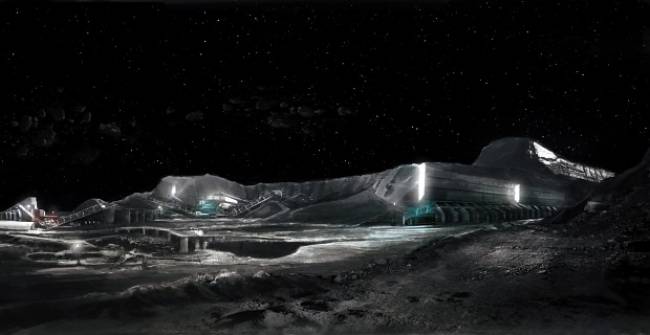Table of Contents
Culture
It is perhaps telling that Elysian territory is most commonly referred to as “The Empire” as this concept is the central focus of Elysian society and culture. Elysian citizens tend to have a strong sense of place or station within the Empire. They may disagree strongly as to whether it is frontier colonies or Homeworld districts that contribute more to the Empire, but by and large a citizen's sense of worth stems from the worth of the Empire as a whole.
As the Elysian Empire consists of hundreds of planets there are hundreds of facets of Elysian culture that can vary wildly from planet to planet1). However one commonality is the empire-wide journalism all will be exposed to, to some extent. The Elysian Herald is a respectable newspaper which can be accessed electronically on all planets and tries to give a balanced view of both news and politics; its journalism is of a high quality though recently there have been concerns about the legitimacy of its sources. It is currently struggling financially owing to the rise in popularity of Blast!!!, a populist tabloid noted for lurid anti-Tel headlines, as under new manager Angel Nkomba the articles have been no less trashy but impeccably referenced and evidenced.
“Councilman Crassius gets telltale Tel tail!” - Blast!!! Headline
This mindset is particularly cultivated by the Board of Directed Truth. Thirty five years ago, in response to the unrest, the Council approved the creation of The Board of Directed Truth, a branch of the Civil Service responsible for the promotion of the Empire and the censoring of materials deemed seditious. This appeared effective until The Declaration of War. The Board is the ideological backbone of the Elysian Empire whose efforts have channeled the attitudes of its disparate citizenry towards civic pride and contentment.
Faith in the Elysian Empire is based on philosophies rather than religions. There is no state philosophy but most philosophies are spiritual and non-theistic in nature. Philosophies such as Organics and Nexus are well known and describe ways of living that prepare an individual's soul to transcend mortality, whether this is at the end of the current life or after a cycle of reincarnation. Followers of these different philosophies manage to peacefully coexist throughout the Elysian Empire, though there are usually distinct districts in which one or other of these philosophies has most sway.
Prison of course tends to attract the more extreme members of society. Service users of reform facilities tend to be those who disagree with at least some of the laws of Elysium. These people are perhaps not the role models of society that the Board portrays in the media. However, many believe that the influence of the Board extends even to the mess halls of the most remote reform facilities.
Habitations
(See: FAQs: What is (place) like?)
Planets
The majority of Elysian citizens live on one of the hundreds of planets in the Empire. Life on planets is generally relatively relaxed, and there is plenty of space for everyone. Housing is plentiful and large, and most households will have their own garden. The climate and culture of individual planets varies widely across the Empire.
Space Stations
 The main type of non-planetary colony, space stations are massive structures, mostly located in orbit around a star or planet, which house hundreds of thousands, perhaps millions of people. Space stations are crowded places, similar to the large cities of the Homeworld, where citizens are crammed into small apartments and life proceeds at a hectic pace. Access to anything resembling “outdoor” space is rare, though some stations have communal gardens or allotments, which are maintained either by the station government or by volunteers. The higher status citizenry of space stations tend to be traders and businesspeople. Citizens on space stations do not get a vote within the Elysian Empire
The main type of non-planetary colony, space stations are massive structures, mostly located in orbit around a star or planet, which house hundreds of thousands, perhaps millions of people. Space stations are crowded places, similar to the large cities of the Homeworld, where citizens are crammed into small apartments and life proceeds at a hectic pace. Access to anything resembling “outdoor” space is rare, though some stations have communal gardens or allotments, which are maintained either by the station government or by volunteers. The higher status citizenry of space stations tend to be traders and businesspeople. Citizens on space stations do not get a vote within the Elysian Empire
As well as the Elysian stations, most major systems will have a space station belonging to The Consortium, and empire of merchants and traders. Elysian citizens are not allowed to reside permanently on Consortium stations, but some will sneak aboard and may remain undetected. A repatriation agreement exists between The Consortium and the Elysian Empire, so crimes committed on Consortium stations by Elysian citizens are dealt with by the Elysian judiciary system.
Mining Outposts
The other type of non-planetary colony, mining outposts are relatively small habitations of only a few thousand people located on asteroids. Their culture is very work focused, and the residents are generally only there for one or two years at a time. As well as mining the resources from the asteroids they are based on, these outposts have a reputation as a haven for smugglers and pirates, not asking too many questions about the goods which passing ships have to sell.
Politics
The Elysian Empire is governed by the Council. The consolidation of the Council's power was a gradual affair, so it's hard to pinpoint an exact date when their control became absolute. Certainly, a large factor was the unrest and population pressure as the first wave of expansion faltered. After the Sovereignty of the Council was established in 498PE, its 20 seats slowly filled with the most powerful business people of the Empire. These individuals happened to control the vast majority of the Empire's assets. Since then, control has slowly tightened as the Empire expanded. It was claimed this was due to the impracticality of maintaining a universal democracy over ever increasing distances with ever increasing populations. In order to ensure the Council was always occupied by the most qualified candidates, they imposed a system whereby the sitting Council chooses 200 nominees (at least one from each settled planet) every twelve years, who are placed on the Short List. This list is finalised at the 6 year mark of every 12 year cycle. From this list, 20 are elected to form the next Council. These nominees are supposedly people who have performed great services to the Empire. However, it is uncommon for an incumbent Council member to be voted out without some sort of scandal occurring; perhaps five seats change hands in any given election. Despite this, it is a great honour to be nominated for the Short List and those chosen are almost guaranteed a prominent position in the Civil Service, which gives them a great deal of power.
In addition to the restrictions on those who may be elected to represent their planets, there are also restrictions on those who are allowed to vote. On each settled planet, between 1% and 3% of the population have the right to vote. These individuals are selected by the Civil Service for their service to their planet or the Empire, and are expected to represent the views of the planet at large. Those allowed to vote are referred to as the Electoral College. The Electoral College is finalised at the ten year mark of every twelve year cycle2). Once a person is in the Electoral College, only scandal will remove them, and so in order to keep a stable and manageable number of voters it is very rare for someone's name to be added to it.
The strict control of the Council did not cause much issue until the Council began commandeering the resources of planets in the Empire in order to further their expansion efforts during the second wave of terraforming. Resentment grew amongst those who had strong senses of planetary identity and among those most affected by these requisitions.
This included growing protest from the non-planetary colonies, which were formed of stations on asteroids or artificial satellites. They were originally established whilst other planets were unlivable but many people have chosen to remain there after the Empire's success with terraforming. They generally have smaller populations than settled planets and a more industrial economy. These colonies shoulder a large burden of production and receive little funding or support from the Empire. People from such colonies are generally considered not real citizens, as they are not permitted any representation in the Electoral College or the Council. They are also looked down on for their choice to continue life on space stations rather than settling on planets, and for having more industrial cultures. “Colly”, or “colly-born”, is a relatively mainstream slur used by planet-based Elysian citizens against those born on the non-planetary colonies.
“But you're only inches from space!”
“…Volcanoes.”
“Recycled urine for drinking water!”
“…Earthquakes.”
“Depressurisation!”
“We can choose our own gravity.”
“We have a horizon.”
“Seeing all the stars.”
“Sunrises!”
–Typical Elysian bar 'colly' vs. planetary discussion
The war put quite a strain on the economy. This has ignited sparks of discontent across the poorer planets and in the work colonies. There are now small pockets of disorganised resistance to the Council's control. These are still relatively weak and small in number, and condemned by the vast majority of the Empire. In particular, several groups of loyal citizens have formed a patriotic counter-movement, which actively seeks to stamp out political dissent and promote the war effort. This includes significantly devaluing the lives of the Tel. Public trials are held to convict of sabotage those who proclaim seditious ideas.
